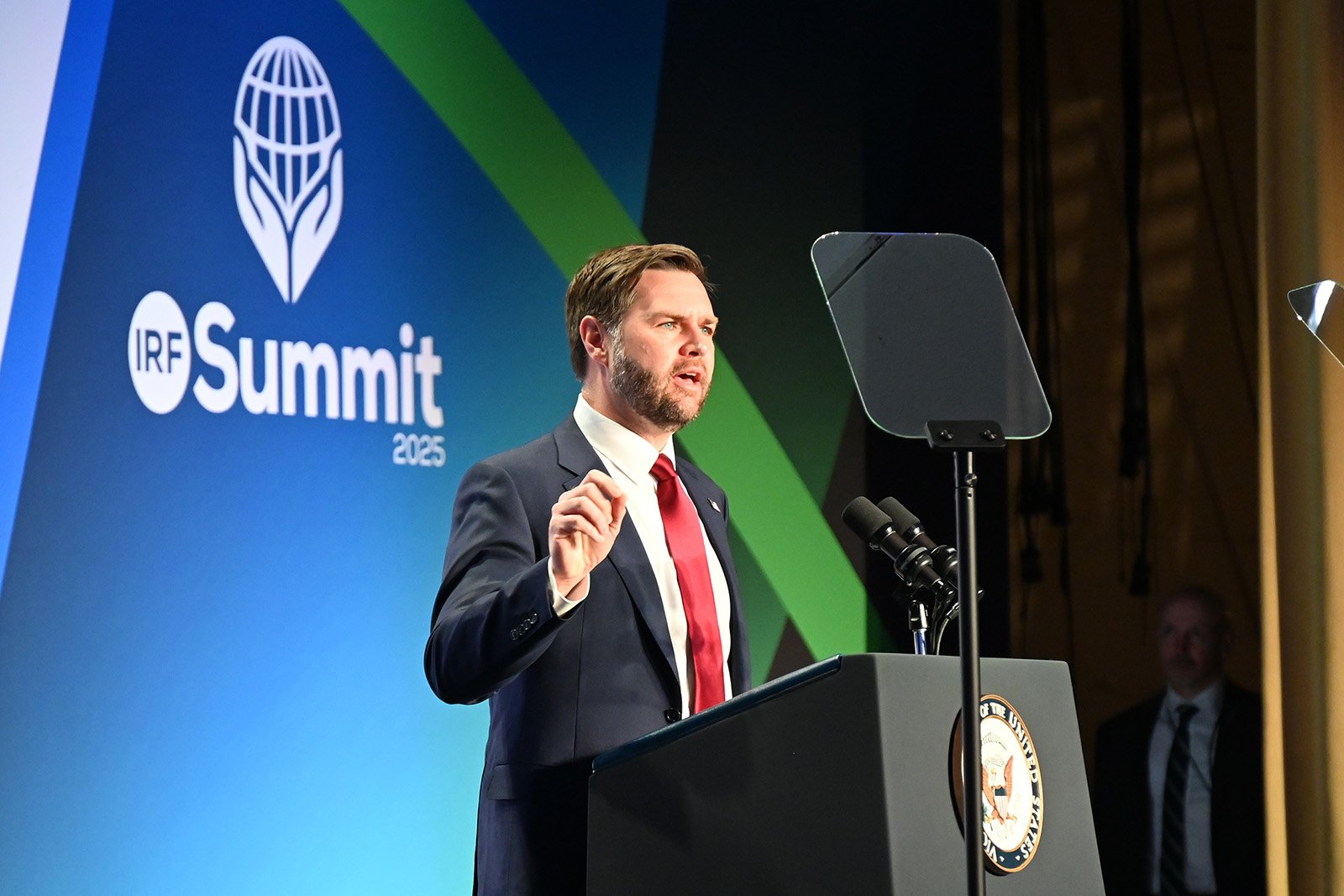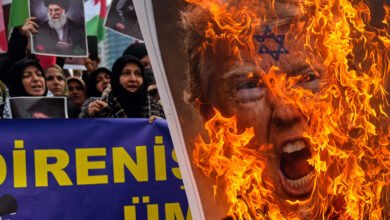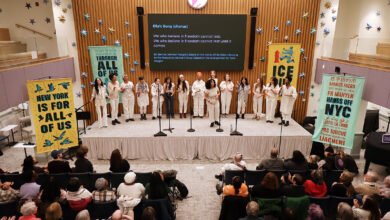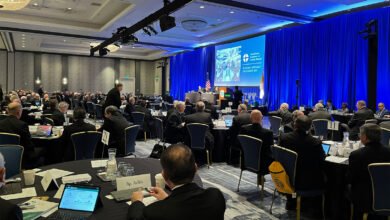WASHINGTON (RNS) — Vice President JD Vance addressed a group of religious leaders on Wednesday (Feb. 5) at the International Religious Freedom Summit, arguing President Donald Trump will prioritize the right to worship freely abroad even as his administration faces lawsuits accusing him of infringing on religious freedom at home and criticism from faith groups whose funding has been affected by the president’s actions.
“Our Founding Fathers rightly recognized this, listing freedom of religion first among the liberties enshrined in our great Constitution,” Vance told the crowd gathered at the Washington Hilton. The annual summit is co-chaired by Sam Brownback, who was appointed as ambassador-at-large for international religious freedom during Trump’s first term.
Vance, a Catholic, dedicated a significant section of his address to framing religious liberty as a product of Christianity.
“Religious freedom flows from concepts central to the Christian faith, in particular the free will of human beings and the essential dignity of all peoples,” Vance said, later insisting it is the “church fathers of classical Christianity to which we owe the very notion of religious liberty,” a historical argument popular in conservative circles.
“We remain the world’s largest majority-Christian country, and the right to religious freedom is protected by the people for everybody, whether you’re a Christian, a Jew, a Muslim or no faith at all,” he said.
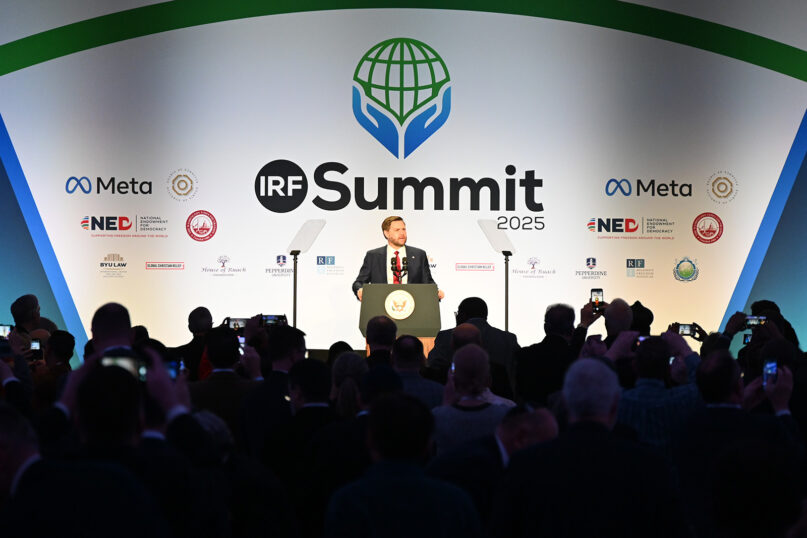
Vice President JD Vance speaks at the International Religious Freedom Summit at the Washington Hilton, Feb. 5, 2025, in Washington. (RNS photo/Jack Jenkins)
Vance celebrated several of Trump’s actions in his first term and over the past two weeks, such as executive orders to “end the weaponization of the federal government against religious Americans,” along with efforts to combat antisemitism and the pardoning of anti-abortion protesters.
Vance also said Trump has worked to “stop the federal censorship used to prevent Americans from speaking their conscience and speaking their mind, whether it’s in their communities or online,” an apparent reference to Trump’s executive order “preventing online censorship.” Among the main sponsors of the summit is Meta, the parent company of Facebook owned by Mark Zuckerberg, who attended Trump’s inauguration.
Near the end of the vice president’s remarks, he pivoted to a discussion of international policy.
“In recent years, too often has our nation’s international engagement on religious liberty issues been corrupted and distorted to the point of absurdity,” he said. “Think about this: How did America get to the point where we’re sending hundreds of thousands of taxpayer dollars abroad to NGOs that are dedicated to spreading atheism all over the globe?”
The question appeared to be a reference to a conservative argument criticizing work done by the U.S. State Department to promote a version of religious freedom that includes protecting the rights of nonreligious people. Recently, Republican leaders have listed the argument alongside criticism of the U.S. Agency for International Development, which the Trump administration has aggressively gutted in recent days and placed under the leadership of Secretary of State Marco Rubio. From fiscal years 2013-2022, the largest single recipient of USAID funds was Catholic Relief Services, according to Forbes.
Vance’s speech was met with hearty applause, with several summit attendees celebrating his remarks. The Rev. Greg McBrayer, an Anglican Church in North America priest and a presenter at the conference, said he was “absolutely thrilled” with Vance’s speech, calling it “very encouraging.”
“There’s an administration in place right now that will give us the opportunity to continue to grow as a people and grow our faith,” McBrayer said, adding that he hopes the U.S. will be “used as a global instrument to promote that kind of growth and receptivity around the world.”
But there was also disagreement in the room. Shortly after Vance finished, an attendee walked quickly past where press were gathered and said in a loud voice, “That was gaslighting!”
The Rev. Mae Elise Cannon, head of Churches for Middle East Peace, one of the sponsors of the conference, also expressed frustration with the address.
“Vice President Vance gave lip service to international religious freedom and liberty for all. However, the subtext of his message included deeply disturbing assumptions about the superiority of Christianity and the idea that only the ‘right kind of people’ should have complete freedom and human rights,” Cannon, who was present for the speech, said in an emailed statement a short time later.
“As a follower of Jesus, the idea that America is a ‘Christian nation’ ignores the multi-faceted, complex, and often oppressive history of the United States,” she wrote.
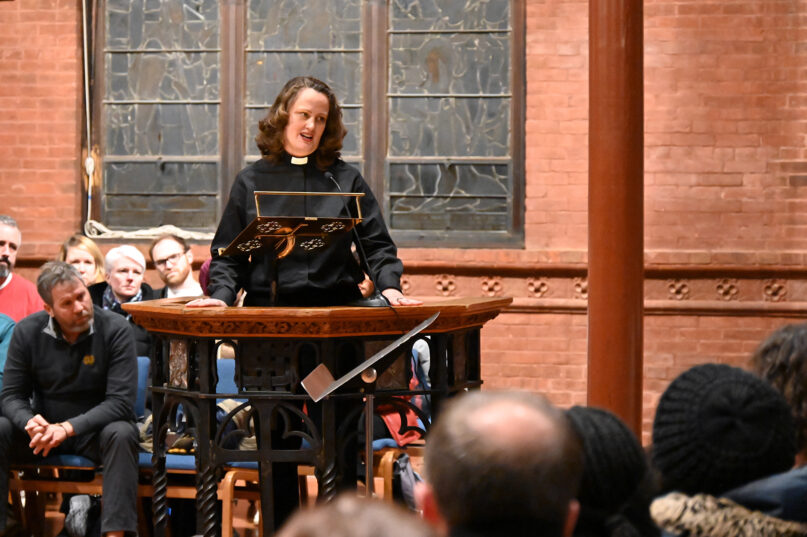
The Rev. Mae Elise Cannon, executive director of Churches for Middle East Peace, speaks during a vigil at St. Mark’s Episcopal Church in Washington, Nov. 28, 2023. (RNS photo/Jack Jenkins)
Cannon also wrote that Vance “did not say that our churches and Christians are protected when we seek to live out our faith by ‘welcoming the stranger’ and protecting the undocumented,” a possible reference to the Trump administration’s decision to rescind the sensitive locations policy — an internal government policy created in 2011 that discourages immigration raids at schools, hospitals and churches. The decision is currently the subject of a lawsuit filed against the administration by Quaker groups who argue the government’s actions violate the Religious Freedom Restoration Act. At least one immigrant was reportedly arrested while attending worship at a church in Atlanta last week.
Cannon, whose group has long advocated for Palestinians, also criticized Vance for not mentioning that “the rights of Palestinian Muslims and Christians have been violated in the ongoing war between Israel and Hamas” or “the ways Jewish people have been suffering from increased antisemitism around the world because of being unilaterally associated with the unjust policies of the State of Israel.”
Vance’s speech came the morning after Trump proposed that the U.S. “take over” the Gaza Strip and relocate Palestinians displaced by the Israel-Hamas war elsewhere, actions experts argue would violate international law.
Standing outside the ballroom shortly after the speech, Godfrey Yogarajah, World Evangelical Alliance’s ambassador of religious freedom, took issue with Vance’s remarks about atheism, saying in an interview, “Freedom of religion or belief also gives people a right not to believe.”
Yogarajah was also concerned about cuts and freezes to funding at USAID, arguing it will create a vacuum that could be filled by rivals of the U.S. that may have a different posture toward religious freedom.
“I think maybe the U.S. is just playing into the hands of China,” he said. “It is not in the interest of U.S. to really withdraw, because I would think that some of these values being out there actually is in the interest of the U.S.”
He was echoed by Mike Gabriel, head of the religious liberty commission at the National Christian Evangelical Alliance of Sri Lanka. Gabriel said that he was encouraged that Vance recommitted to advocating for religious freedom abroad, but that freezes on U.S. funds have already impacted his group.
“We work with U.S. government funds on advanced religious freedom in the country,” he said, later clarifying the funds come through USAID and go toward working with persecuted Christians in Sri Lanka. “Right now, because of the funding freeze, urgent support to document religious freedom violations, provide aid to persecuted Christians such as legal support for litigation, have come to a halt.”
Gabriel expressed hope that the funding would eventually be restored but described the current situation as “really unfortunate.”
In addition to ongoing lawsuits, Vance’s remarks speak to a series of clashes between faith groups and the new Trump administration over the past two weeks. After the Rt. Rev. Mariann Budde, the Episcopal bishop of Washington, pleaded with the president to “have mercy” on transgender children and immigrants in a sermon at the Washington National Cathedral, Trump decried her remarks as “nasty in tone” and dismissed the prelate as a “so-called bishop.”
A few days later, after the U.S. Conference of Catholic Bishops and other Catholic organizations issued statements condemning the president’s executive orders regarding immigrants and refugees, Vance himself questioned the motives of Catholic prelates, suggesting they were more concerned about their “bottom line” than helping the needy.
Trump has also all but frozen the U.S. refugee program and cut off funding to the seven religious groups that work with the government to resettle refugees — and, in at least one instance, is allegedly refusing to reimburse the groups for work done before Trump assumed office. The organizations staged a protest outside the White House on Tuesday, with leaders saying their staff has undergone widespread furloughs and layoffs in order to cobble together the resources needed to care for resettled refugees.
Source link
